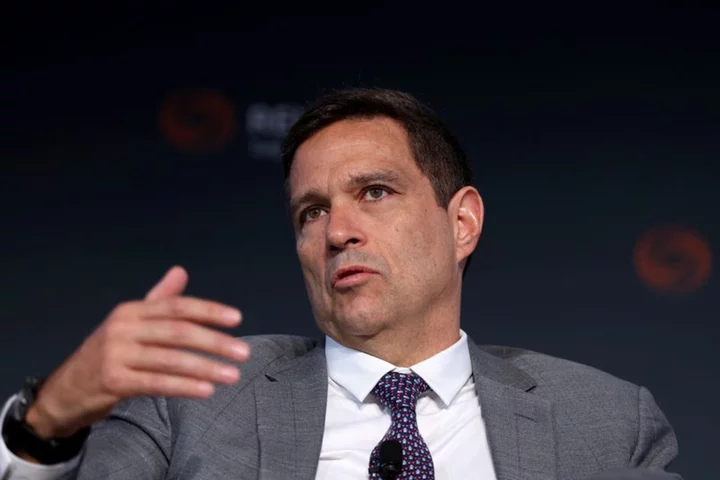BRASILIA Brazil's central bank chief said on Friday that interest rate cuts will not lead to a significant weakening in the real currency, which has been performing well.
Speaking at an event hosted by local newspapers O Globo and Valor Economico, Roberto Campos Neto, reiterated that the country still has a "relatively high" interest rate differential compared to advanced economies.
The Brazilian real has appreciated by 8% so far this year against the U.S. dollar, supported by positive trade flows amid strength in its agribusinesses and an improved risk perception following the approval of new fiscal rules proposed by the government.
The central bank began easing in August after maintaining interest rates at a cycle-high for almost a year to combat inflation. So far, borrowing costs have fallen 150 basis points to 12.25%, and policymakers signaled a further 50 basis point cut in each of the next two meetings to January.
Campos Neto said that domestic inflation has been converging towards official targets, with improvements in core readings. However, he acknowledged ongoing challenges in bringing it under control.
According to the central bank chief, the credit situation in the country is now "a little better," with improvements in the capital markets, especially in fixed income.
Regarding a potential change in the government's fiscal target to eliminate the primary deficit next year, he reiterated his support for maintaining the target.
"I have joined the chorus of the Finance Ministry that it is important to insist on maintaining the target and seek (additional) revenues," he said.
On Thursday, Brazil's Institutional Relations Minister Alexandre Padilha said that there would be no government initiative to change the target, following President Luiz Inacio Lula da Silva's remarks that erasing the budget deficit by next year was unnecessary as it would threaten the financing of essential investments.
(Reporting by Marcela Ayres; Editing by Sharon Singleton)

